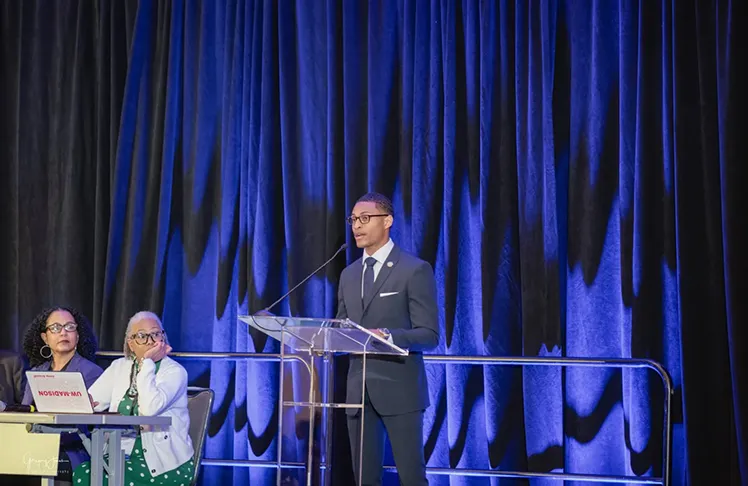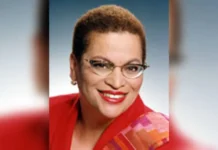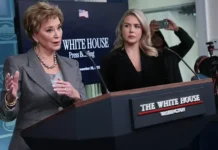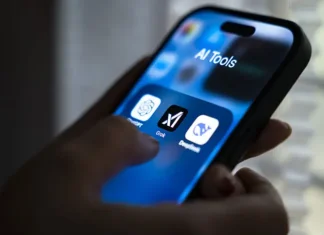
by Aziah Siid
Growing up in South Los Angeles, Chase Moore experienced first-hand the challenges many Black boys face in school: disciplinary suspensions and being labeled a “problem” student — prime entry points for the school-to-prison pipeline.
Football became Moore’s escape route. He played in Snoop Dogg’s youth league, was a high school star, and played for the University of Texas Longhorns, a college powerhouse. His campus activism in Austin and passion for education policy, however, started Moore on a path that led to a job as special advisor to Education Secretary Miguel Cardona.
His remarkable journey, however, will end in about five days, when President Joe Biden leaves office and Cardona goes with him. With President-elect Donald Trump’s promise to dismantle the Ed Department — and his choice of Linda McMahon, a businesswoman with little experience in education, to replace Cardona — Moore is worried about what comes next for himself, as well as the young Black boys he fought for, like the one he used to be.
“For me and many others, January 20 is my last day working for the federal government, so that means that a lot of people are not just nervous about the work that they’ve been working on, but actually their livelihood,” says Moore, equity lead of the White House Black Initiative. “How are they going to pay rent? What (does) their next step look like?”
Moore’s job as special advisor to Cardona is to coordinate programs, initiatives, and activities for districts across the country aimed at addressing educational inequalities that hold back Black K-12 students from reaching their potential. Last fall after the election, Cardona and other leaders in the department promised themselves to not get distracted and work until the end, advice Moore has taken to heart.
“We had an emergency meeting with some of our higher-ups at the Department of Education, and they were essentially reinforcing that we had an expiration date, but we have an opportunity to run a hell of a race for the next 80 days,” Moore recalled.
After dedicating years of networking and research on building more equitable education systems under the Ed Department’s Black Initiative, Moore is not optimistic about what comes next, but he plans to continue the work. And he has advice for parents, teachers and private citizens on how to push back on Trump’s more harmful education policies.
Local Elections Matter
The presidential election comes around every four years and gets the lion’s share of attention.But there are other smaller, more local elections where voters can have more of a direct impact. Moore says that’s where the rubber meets the road in school issues; participating in local elections literally gives voters a say in laws and policies that will affect everything from filling potholes to school disciplinary policies.
“It’s very normal in our community — that ‘My vote doesn’t count’ narrative,” Moore says. “If you go to a grocery store, if you go to the barbershop, you’ll find Black people literally saying, ‘My vote doesn’t matter’ right? But it does, and it’s very important, especially at the local level.”
Citizen groups and other organizations are constantly working behind the scenes on problems and issues that affect their communities — including how schools are run, what resources they lack, what should be on the curriculum and even disciplinary policies.
“We’ll get online on Twitter, Instagram, on Shade Room, and we’ll get all upset and mad if some outrageous educational thing happens, such as dismantling Black history,” Moore says. But the problem actually occurred upstream, Moore says, when “we didn’t show up in local elections when we could have voted for a school board member to share our interests.”
Mobilizing and Joining Coalitions
As part of his Education Department responsibilities, Moore was in frequent contact with progressive ed-reform organizations like the Zinn Education Project and We Need Diverse Books, among others. Connecting with those nonprofit groups can help parents resist Trump’s education agenda by staying ahead of public education issues, organizing and being proactive against policies that may be harmful or discriminatory towards their children.
“It’s extremely important that we find coalitions nationally, and we find ways to mobilize beyond just the federal government, whether the US Department of Education gets dismantled, whether it does not, no matter what,” Chase says. ”The work still has to get done.”
Those coalitions, he says, should also include partnerships with philanthropic organizations. One example is the latest book ban awareness events conducted by the New York Public Library.
“They got money, they got resources, so how can we still leverage what we do in a different way?” Moore says. That, he says, involves “thinking about national, state, local coalitions and how much further do we have to go — thinking of it in a more strategic way.”
Get A Clear Picture of What K-12 Should Be
Working in the Biden Administration while still in his 20s, Moore says his perspective immensely on what actually matters when it comes to understanding the needs of Black students. He believes those who set education policy for disadvantaged students like he was in elementary school needs younger, more credible voices that can have impact.
“The tradition — you got to teach for 30 years at a Title I school to understand said issue doesn’t exist anymore,” he says. “I’ve been in a room where I’m the youngest person, the only black male, but I’m just as qualified, so I definitely want to add the beautiful impact of those that come from different frameworks.”















